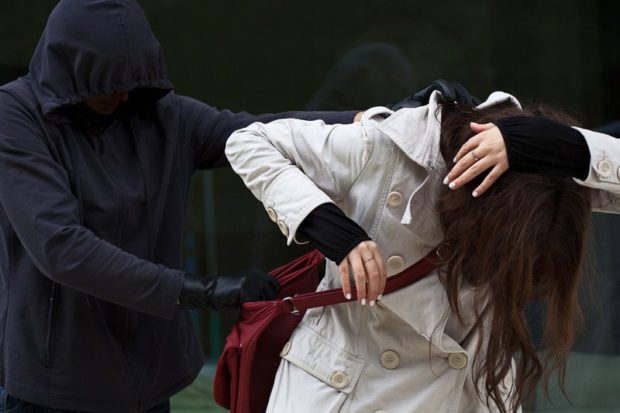Nightmare On YOUR Street: When The Victim is YOU

There’s been a lot of talk about assault in the media of late. And whether or not any or all of those stories are accurate, women are almost always at higher risk of being the victim of assault. Women’s rights and self-defense are topics you need to get more personal with. And it starts with knowing these basics.
What is Assault?
Even the word itself is loaded with connotations and interpretations. So it’s no wonder we don’t know whether or not our experience falls in the category of an assault. So to begin with, let’s look at the legal definition of assault, from The Cornell University Law School:
- Intentionally putting another person in reasonable apprehension of an imminent harmful or offensive contact. With the intent to cause physical injury, or making another person reasonably apprehend an imminent harmful or offensive contact.
So assault is not limited to when physical harm has been intended or occurred. “Offensive contact” is what makes it not only inappropriate but illegal for one person to physically violate another.
Further, sexual assault generally refers to any crime in which the offender subjects the victim to sexual touching that is unwanted and offensive.
Assault, sexual or otherwise, is a personal violation that not only should not be tolerated but should be reported to the appropriate authorities. Even if you ultimately decide to not press charges, it is vital that you get the incident on record. The news of late has demonstrated how important this is, not just for yourself but for others who may become victims of the same perpetrator.
Women’s Self Defense Basics
For most women, the reality is that we’re not as strong as men. We have a natural physical disadvantage that we have to deal with. Knowing that, it only makes sense to take precautions and make some preparations. While you may never have to use them, the risk of being unable to defend yourself in the most basic of ways is not something you want to take.
Forget about the buff and tough heroines you see on television or in the movies. Yeah, we’d all like to believe we can kick ass, but unless you’re a gym rat and a martial arts pro, that’s just not going to happen. But that doesn’t mean you have to practice for years to gain at least some advantage. Shut off the television one night a week for six months and go take a self defense class. Or if that won’t work, you can find ones that are offered on weekends or just a Saturday.
At minimum, look at some good self defense coaching tips that you can find on YouTube, like those offered by Nick Drossos. Here’s one of his, and you can find many more on his YouTube channel.
If You’re The Victim
If you’re a victim of assault, there are two things that are critical:
- GET AWAY
- GET IT ON RECORD
One of the things that Nick stresses in his training is that your primary objective is to get away. So the first opportunity you have to get out of the situation you should take it – – and run. Until you can do that, look at his videos and learn what you should do to protect yourself and survive.
Once you’re out of the situation, report it. Get it on record that it happened. One of the keys to being believed later is whether or not there was contemporaneous communication. Meaning, did you tell someone about what happened close to the time when it happened.
If rape or physical harm occurred, the report should be made to the police, immediately. But what if there wasn’t rape or harm? You should still report it. While you may not choose to go to the police (you should!), there are others you can go on record with. These include:
- Clergy
- Women’s Shelters
- Friends and/or family
- Counselors
- Co-workers or Personnel Departments
Remember, you’re not just protecting yourself when you take a stand against a perpetrator. You’re taking a stand for every other women out there who may be the next victim.
Image credit: Main


